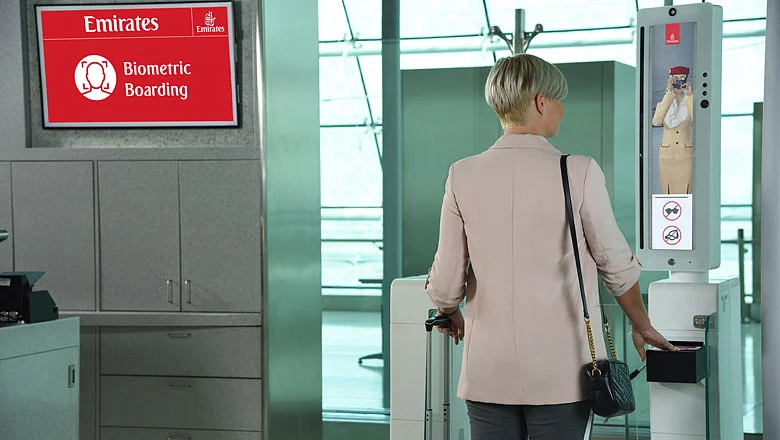
Your Phone As Passport: Flyers Now Book Flights, Check In, Clear Immigration On Mobile
For today's air travellers, the journey now starts - and often ends - on a smartphone, a new global survey has found. Passengers are increasingly booking flights, paying fares, checking in, and even tagging bags on their devices, according to the International Air Transport Association's (IATA) 2025 Global Passenger Survey released on Wednesday.
More than half of travellers (54 per cent) prefer to deal directly with airlines and are increasingly doing so via apps. Airline websites remain the most popular channel at 31 per cent, but that share has fallen sharply from 37 per cent last year. Meanwhile, apps were chosen by 19 per cent of passengers in 2025, up from 16 per cent in 2024, with younger travellers (25 per cent) driving the shift.
Recommended For YouTravellers also want phones to replace physical documents: 78 per cent want a single smartphone solution combining a digital passport, wallet, and loyalty cards to book, pay, and pass through airport processes. Mobile-enabled baggage handling is on the rise too, with electronic bag-tag adoption jumping from 28 per cent to 35 per cent in a year.
Stay up to date with the latest news. Follow KT on WhatsApp Channels.
Payment behaviour is evolving alongside booking habits. While cards remain dominant at 72 per cent, that is down significantly from 79 per cent in 2024. Digital wallet use has climbed from 20 per cent to 28 per cent, and instant payment options have risen from 6 per cent to 8 per cent.
“Passengers want to manage their travel the same way they manage many other aspects of their lives - on their smartphones and using digital ID,” said Nick Careen, IATA's Senior Vice-President for Operations, Safety & Security, emphasising that trust and cybersecurity must be core to travel's digital transformation.
The findings are based on more than 10,000 responses from travellers across over 200 countries, offering a broad snapshot of what passengers expect from the air-travel experience in 2025.
According to IATA, Middle East passengers are“highly digitally engaged, with widespread use of digital wallets and strong enthusiasm for smartphone-based travel credentials”. They are among the most satisfied travellers globally, ranking third overall, with loyalty and service quality remaining top priorities.
Biometrics gain favourBiometric use at airports continues to grow, with 50 per cent of passengers now having used facial recognition at some stage of their journey, up from 46 per cent last year. Use is most common at security (44 per cent), exit immigration (41 per cent), and entry immigration (35 per cent).
In the UAE, the shift is already well underway. Emirates has installed more than 200 biometric facial-recognition cameras in Terminal 3 at Dubai International Airport, allowing registered passengers to move from check-in to boarding without showing a passport or boarding pass. At Zayed International Airport in Abu Dhabi, a biometric“Smart Travel” system is being rolled out across check-in, security, and transfer touchpoints, enabling document-free movement and potentially allowing travellers to clear immigration in as little as seven seconds.
The IATA survey shows strong support for the technology: 85 per cent of those who used biometrics reported being happy with the experience, and 74 per cent said they would share biometric data if it meant skipping passport or boarding pass checks.
Still, privacy concerns persist. Among those unwilling to share their biometric data, 42 per cent said they would reconsider if data-privacy protections were assured.
Careen noted that the next major step is for governments to issue digital passports and enable their secure recognition across borders - a shift that would pave the way for fully digital travel experiences.

Legal Disclaimer:
MENAFN provides the
information “as is” without warranty of any kind. We do not accept
any responsibility or liability for the accuracy, content, images,
videos, licenses, completeness, legality, or reliability of the information
contained in this article. If you have any complaints or copyright
issues related to this article, kindly contact the provider above.
















Comments
No comment